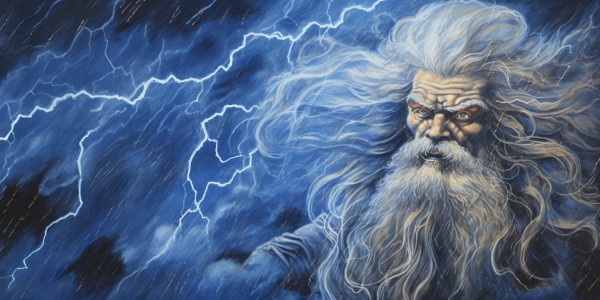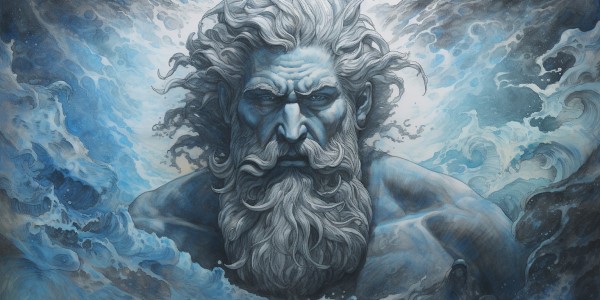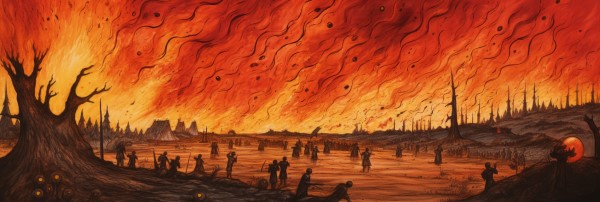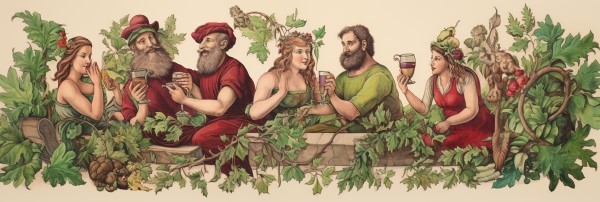KidZone Geography: Greece
Mount Olympus: The Majestic Abode of the Gods
Mount Olympus stands as the awe-inspiring pinnacle of Greek mythology, revered as the heavenly domain where the gods of ancient Greece reside. Towering high above the land and shrouded in clouds, this majestic mountain symbolizes the divine power and grandeur of the Olympian gods. Let's ascend the mythological slopes of Mount Olympus and explore the celestial home of these immortal beings.

The Pantheon of Olympian Gods
Mount Olympus is the court of Zeus, the mighty king of the gods, and his powerful siblings and children. Each god and goddess has their own realm of influence, reflecting aspects of the natural world and human experience, from love and war to the sea and the harvest.
Zeus: The King of the Gods

Zeus, wielding his fearsome thunderbolts, rules over the sky and the earth from his throne on Mount Olympus. He is the arbiter of justice and the god of the sky, known for his wisdom and occasional mischief.
Hera: The Queen of the Gods

Hera, the wife of Zeus, is the goddess of marriage and childbirth. She presides over matters of the family and is often depicted as both regal and fiercely protective of her own position and her children.
Poseidon: The Lord of the Seas

Poseidon, brother to Zeus, rules the oceans with his mighty trident. He is the god of the sea, earthquakes, and horses, known for his temperamental nature, which could stir storms and calm waters alike.
Hades: The Ruler of the Underworld

Hades, the enigmatic god of the Underworld, reigns over the realm of the dead with a just and steady hand. As one of the three mighty sons of Cronus and Rhea, alongside Zeus and Poseidon, Hades was allotted dominion over the dead, becoming the custodian of the afterlife in the ancient Greek pantheon. His kingdom is not merely a place of darkness and despair but a multifaceted domain where the souls of the departed are judged and find their final resting places, be it in the Elysian Fields, the Asphodel Meadows, or the depths of Tartarus.
Aphrodite: The Goddess of Love and Beauty

Aphrodite, emerging from the sea foam, reigns over love, beauty, and desire. With her enchanting charm, she influences the hearts of gods and mortals alike, weaving the threads of attraction and affection with ease and grace.
Apollo: The God of Light and Arts

Apollo, the son of Zeus and Leto, shines as the god of the sun, music, poetry, and healing. His golden lyre brings harmony and order, and his arrows can bring forth disease or healing, highlighting his dual nature as a bringer of light and a protector from darkness.
Ares: The God of War

Ares, the son of Zeus and Hera, personifies the brutal and violent aspects of warfare. Unlike Athena's strategic and intellectual approach to war, Ares represents the chaotic and destructive side, reveling in the clamor and bloodshed of the battlefield.
Artemis: The Goddess of the Hunt and Wilderness

Artemis, Apollo's twin sister, roams the forests with her bow and arrow as the goddess of the hunt, wilderness, and childbirth. She is a fierce protector of the young and the wild, embodying the untamed aspects of nature and the independence of the female spirit.
Athena: The Goddess of Wisdom

Athena, born from Zeus's head fully armored, is the goddess of wisdom, war strategy, and crafts. She is the protector of Athens, from which she receives her name, and is revered for her intelligence and mercy in warfare.
Demeter: The Goddess of Agriculture and Harvest

Demeter, the nurturing mother of the earth, governs agriculture, fertility, and the harvest. Her deep connection to the cycle of life and death is poignantly illustrated in the myth of her daughter Persephone, whose annual descent into and return from the Underworld symbolizes the changing seasons.
Dionysus: The God of Wine and Festivity

Dionysus, born from Zeus's thigh, is the god of wine, ecstasy, and revelry. He brings joy and divine madness through the vine, leading his followers in wild, mystic festivities that break the bounds of the mundane and touch the divine.
Hephaestus: The God of Fire and Craftsmanship

Hephaestus, the master blacksmith of the gods, forges weapons and marvelous items with his unmatched skill at the anvil. Despite his physical imperfections, his craftsmanship is unrivaled, symbolizing the transformative power of fire and the value of artisanship.
Hermes: The Messenger of the Gods

Hermes, wearing his winged sandals and helmet, is the swift messenger of the gods, the god of trade, thieves, and travel. His cunning and cleverness serve him well as he moves between the divine and mortal worlds, a mediator and a trickster, guiding souls to the Underworld.
- more About Hermes
Hestia: The Goddess of Hearth and Home

Hestia, the eldest sister of Zeus, presides over the hearth and home, maintaining the sacred flame that binds families and communities. Her gentle and non-confrontational nature emphasizes the importance of stability, hospitality, and domestic harmony.
The Splendor of Olympus
Mount Olympus is not just the home of the gods but a symbol of their power and the beauty of the natural world. The mountain is described as a place of perfect weather, eternal spring, and peace, where the gods reside in magnificent palaces crafted by Hephaestus, the god of blacksmiths and fire.
The Ambrosia and Nectar
The gods of Olympus feast on ambrosia and drink nectar, divine substances that confer immortality and eternal youth upon them. Their feasts are often accompanied by the music of Apollo's lyre and the Muses' songs.
The Council of the Gods
The summit of Mount Olympus serves as the meeting place for the gods, where they discuss divine matters and make decisions about the fate of the world and mortals. These gatherings underscore the gods' authority over the natural and human realms.
The Cultural Legacy of Olympus
Mount Olympus occupies a central place in Greek mythology, symbolizing the height of divine presence and the bridge between the mortal world and the realm of the gods. It has inspired countless works of art, literature, and philosophy, serving as a metaphor for the pursuit of excellence and the exploration of the divine.
Ascending the mythological Mount Olympus offers us a glimpse into the rich tapestry of Greek mythology, where the gods live, love, and govern the cosmos. This sacred mountain continues to captivate our imagination, reminding us of the enduring power of myths to explain the mysteries of the world around us.